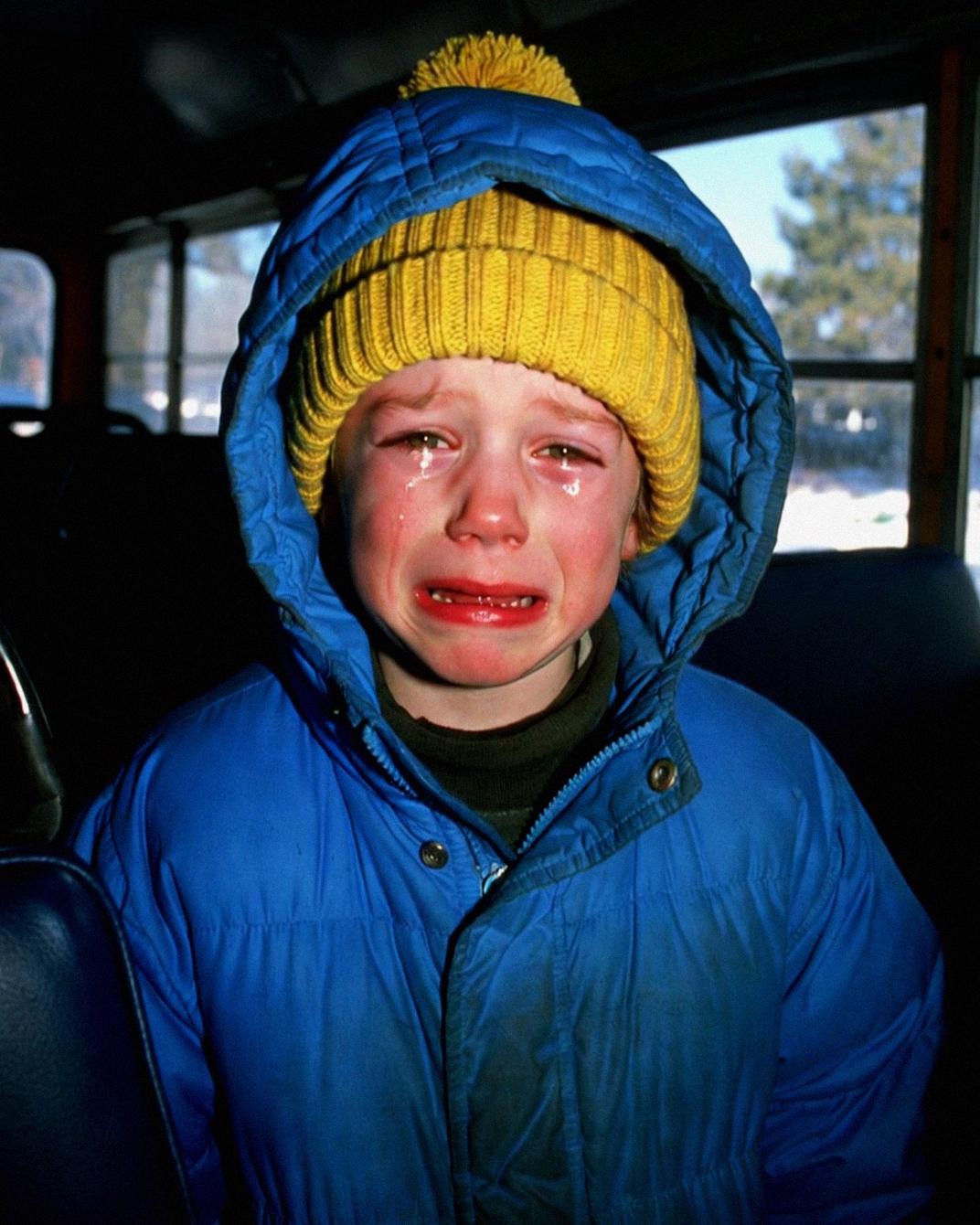I had been driving that same old yellow school bus for fifteen years. Most mornings blurred together—the cold biting at my fingers, the heater groaning to life, kids stomping aboard like a miniature herd of buffalo. But one brutally cold Tuesday changed everything. It began with a faint sob drifting from the back of the bus, a sound so soft I almost missed it. What I found there cracked something inside me that would never fully heal.
I’m Gerald, 45, a school bus driver in a tiny forgotten town. I rise before dawn, unlock the depot, climb into my diesel bus, and fire up the heater so the kids don’t freeze on their way to school. It isn’t glamorous—my wife Linda reminds me often that it barely covers the bills—but the job is mine, and the kids give it meaning.
That Tuesday, the cold gnawed through everything. My fingers stung as I turned the key. I breathed warmth into my hands and climbed the steps, shaking frost off like a dog shaking off water.
“Alright, soldiers, let’s move! This morning’s air has teeth!” I called as the kids hustled aboard.
Little Marcy, five, with pigtails that practically had personalities of their own, planted her mittened fists on her hips. “Gerald, that scarf is awful,” she declared.
“If my mama were alive, she’d knit me one better than yours,” I whispered. She giggled and skipped down the aisle, humming her morning tune.
Once everyone was seated and buckled up, I started the route, listening to the usual chatter—siblings squabbling, whispered secrets, backpacks thudding. After the drop-offs, I walked the aisle, checking for lost homework or mismatched gloves.
That’s when I heard it: a soft sniffle from the far back.
“Hey, someone still back here?” I asked.
A small boy, maybe seven or eight, was curled against the window, trying to disappear into his too-thin coat. His backpack lay untouched. He didn’t look up.
“Why aren’t you heading to class, buddy?”
“I… I’m cold,” he whispered, hiding his hands behind his back.
My chest tightened. “Let me see your hands, kiddo.”
He hesitated, then slowly extended them.
They were blue. Not just cold—blue. Stiff, swollen fingers that had been exposed to the winter chill far too long.
“Oh no,” I breathed, sliding my own gloves onto his tiny hands. They sagged, but they covered him.
“Mine now,” I said. “You warm up.”
“My gloves got ripped… Mommy and Daddy said maybe next month we could get new ones,” he murmured. “But it’s okay. Daddy’s trying.”
I swallowed hard. I knew that quiet kind of struggle. My own family had been tight on money when I was his age. Sometimes, you just keep your head down and hope no one notices.
“Well,” I said, “tell your dad I know a guy who sells the warmest gloves in the county. I’ll pick up a pair today, just your size. Deal?”
He nodded, tears slipping down his cheeks. He hugged me—quick, grateful—and ran toward school.
That afternoon, instead of heading home, I went to the local shop. Janice, the owner, knew me by name.
“You look on a mission, Gerry,” she said.
“I need gloves. Warm gloves. And a scarf—kid-sized.”
She listened, shaking her head, and helped me pick out a sturdy pair and a navy scarf with bold yellow stripes. I spent my last dollar without hesitation.
Back at the bus, I placed the gloves and scarf in an old shoebox and wrote on the lid: “If you feel cold, take something. — Gerald.”
I didn’t tell anyone. I didn’t need to.
That afternoon, some kids paused at the box. And then I saw him—the same boy—reach in and take the scarf. No words. No eye contact. Just quiet acceptance. When he left, he wasn’t shivering. He even smiled.
Two days later, the principal called me in. I expected a complaint.
Instead, Mr. Thompson grinned. “You didn’t do anything wrong, Gerald. You did something incredible.”
He explained the boy’s father, Evan, a firefighter recovering from an injury, had been struggling to provide. “What you did for his son meant the world. It inspired us,” he said.
He slid a paper toward me. “We’re creating a schoolwide fund for kids who need winter clothes. Because of your shoebox.”
I stared. “I… didn’t mean to start anything.”
“That’s why it worked,” he said.
Donations poured in. Mittens, coats, hats—parents, bakers, retired teachers—all contributed. Janice promised ten pairs of gloves weekly. By mid-December, my little shoebox had grown into a full bin. Kids left thank-you notes:
“I don’t get teased anymore.”
“This scarf is warm. Thank you.”
“You’re the best bus driver ever.”
Before winter break, Aiden ran to the bus with a crayon drawing—me, the bus, and smiling kids holding gloves and scarves. At the bottom: “Thank you for keeping us warm. You’re my hero.” I taped it near my steering wheel.
Weeks later, Aiden’s aunt handed me an envelope from the family. A thank-you card and gift card. “For whatever you need,” she said.
At the spring assembly, they invited me. Kids sang “You’ve Got a Friend in Me,” and Mr. Thompson announced:
“This man changed our winter.”
Applause, cheers, tears. Then Aiden appeared, holding his father’s hand. Evan, limping but proud, shook mine.
“You didn’t just help my boy,” he said softly. “You helped us through the hardest season. Your kindness… saved me too.”
Since then, the Warm Ride Project has grown districtwide. No kid rides cold. No hands hidden. Each morning, climbing into that old bus, I feel pride—real pride.
I used to think my job was about driving carefully and showing up. Now I know—it’s about seeing people, showing up in small ways, and being the warmth someone needs when the world feels cold.
